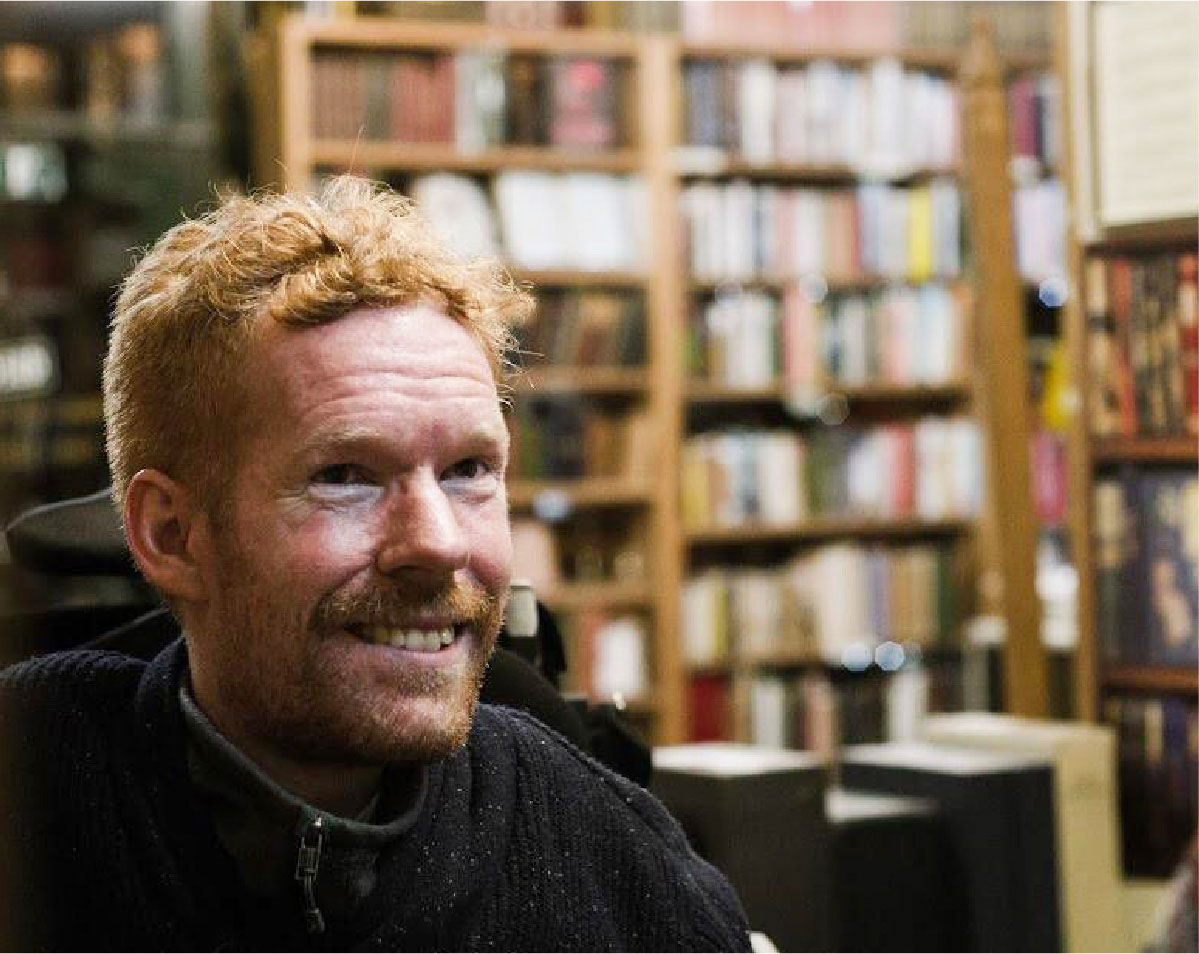Kevan
Creativity and disability
(part 1)

I have been writing books for the better part of ten years now, and before that I played in a band. Having SMA, I’ve always caught people off guard with my subject matter.
“It’s been an uphill battle to sing and write about anything but disabilities.”
There is nothing wrong with creating material related to disability, but as an artist, I personally had other things I identified with and wanted to talk about in my avenues of creativity.
My band sang songs and made references to movies, literature, other bands, our short attention spans, and our inability to get girlfriends. It baffled our audiences that we didn’t talk more about the elephant in the room: my wheelchair, whether for awareness or humor. But we were college kids with other things on our minds... like pizza.
When I started writing books, I wanted to tell stories about pirates, time travelers, and zombies. I would include characters with disabilities, because they fit the narrative, but they weren’t the focus. And most folks who read those books said, “These are great, but what about more on the guy in the wheelchair? I want to hear more about him!”
These are tensions faced by every artist, regardless of whether or not they have a disability. It’s hard for most of the world to see past your sore thumb.
“There is so much more to you than a 400 lb wheelchair, and those other parts of you need outlets, too.”
As an artist (of whatever medium), I encourage you to push through. Get creative with how you navigate creativity. A common joke in filmmaking is that you make a film for you and then a film for “them,” meaning there are times when you take creative license to make what you want and times when you give in to make what is expected of you by others. Strike a balance between the two, which might involve striking a balance between your pride and humility, or your freedom and discipline.
“Art is definitely expression, but it’s also a sharing of experience, so it’s a wrestling match of being for you and others.”
Two years ago, I finally published a memoir of my life with SMA, and have received quite a bit of attention for it. I’ve been glad, as I grow in my craft, to share such a story, but I’m also now navigating how to not get “pigeonholed” as a disabled writer.
In the following two articles, we will explore both routes: producing creative material related to your disability, and producing creative material unrelated to your disability. Doing both is possible, and I would actually suggest it, but ultimately, the aforementioned balance is yours to establish with yourself and your audience. And whatever that balance ends up looking like for you, always strive to be honest in your expressions and endeavors.